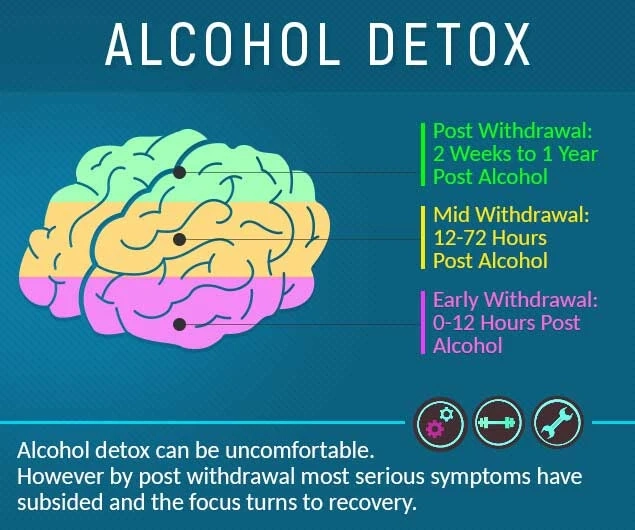Whether you are trying to get your life back on track or you simply want to stop drinking, an alcohol detox is an essential part of the recovery process. There are many different treatments available, but they all have their benefits and their downsides. It is important to make sure you understand what you are getting into before you begin.
Inpatient or outpatient
Choosing between an inpatient or outpatient alcohol detox is an important decision. There are many different factors to consider. The environment you live in, the support you have at home, and your personal circumstances are all important. However, if you are looking for a treatment plan that is the most comprehensive and cost-effective, an inpatient alcohol rehab program may be the right choice for you.
An inpatient alcohol rehab program is usually run by licensed professionals. It offers a safe environment and around the clock care. It can also be paid for through insurance. Depending on the type of program you choose, you can stay at the facility for up to three months.
An outpatient alcohol detox program is less expensive, but may not provide around the clock care. The patient will usually need to travel to the treatment facility each week.
Benzodiazepines reduce withdrawal symptoms
Benzodiazepines (Benzos) are a class of anticonvulsants that are prescribed for the treatment of alcohol withdrawal syndrome (AWS). Benzos are also used to treat symptoms of insomnia and seizures. They are usually administered orally. They are also used to treat mild memory loss. However, benzodiazepines can have serious side effects if used in high doses.
The drug dosages are determined by the severity of the withdrawal symptoms. There are two main categories of benzodiazepine regimens: fast-acting and long-acting. The fast-acting benzodiazepines include Xanax (alprazolam), Valium (diazepam) and Ativan (lorazepam). The long-acting benzodiazepines are clonidine, carbamazepine, clomethiazole, phenytoin, and chlordiazepoxide.
A person's recovery should involve medical care, pharmacotherapy, and counseling. Cognitive behavioral therapy is one method used to treat benzodiazepine addiction. This treatment aims to help the person understand how their thoughts, feelings, and behaviors relate to each other. Cognitive behavioral therapy also helps people develop a plan for coping with their negative thoughts.
Delirium tremens
DTs are a serious condition that can occur during alcohol detox. It affects the mental and nervous system. It is characterized by hallucinations, tremors, seizures, and rapid fluctuations of cognition. It can be dangerous and life threatening, especially when untreated.
It is a medical emergency and should be treated promptly. If you or a loved one are experiencing severe alcohol withdrawal symptoms, you should call 911 immediately.
Delirium tremens is one of the most dangerous forms of alcohol withdrawal. The risk is highest among people who drink large amounts of alcohol on a regular basis. DTs symptoms are usually present within a few days of withdrawal. They may occur suddenly or slowly, but usually last up to 10 days.
A person who is experiencing DTs symptoms should be hospitalized to avoid further health complications. The treatment involves the use of large doses of benzodiazepines. These drugs are used to reduce the risk of seizures and relieve the anxiety associated with DTs.
Depression, anxiety, and personality disorders
Often, people with personality disorders have substance abuse problems. This can make it difficult to find treatment. However, it is possible to overcome these challenges.
A personality disorder is a condition that affects a person's feelings, emotions, relationships, and ability to live a healthy life. People with personality disorders have difficulty controlling their emotions, managing relationships, and changing their beliefs. Often, personality disorders are treated by group and individual therapy sessions, or a combination of both.
During an evaluation, a doctor or mental health specialist will ask questions about your behavior and feelings. In addition, lab tests may be performed. A physical exam may also be performed. Some people with personality disorders also experience trauma. This may include physical or sexual abuse.
Treatment for personality disorders is generally long-term. Individual therapy sessions are typically held with a mental health professional. These sessions include a combination of psychotherapy and behavioral therapies.
Side effects
During alcohol detox, the body is going through a process where it eliminates the effects of alcohol in the body. The process is important in order to prevent life-threatening illnesses.
In order to detox the body safely, it is important to work with an addiction specialist. Medications and a support system are essential during this process.
The symptoms of alcohol withdrawal can range from mild to severe. Symptoms can last for several weeks.
For alcohol detox, a medically supervised program is the best way to go. These programs offer therapies and medications that can lessen the symptoms of alcohol withdrawal. These programs can also ensure a long-term recovery.
During the detox process, individuals may experience powerful cravings. These cravings will diminish over time.
0


